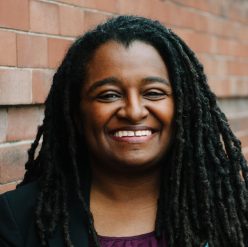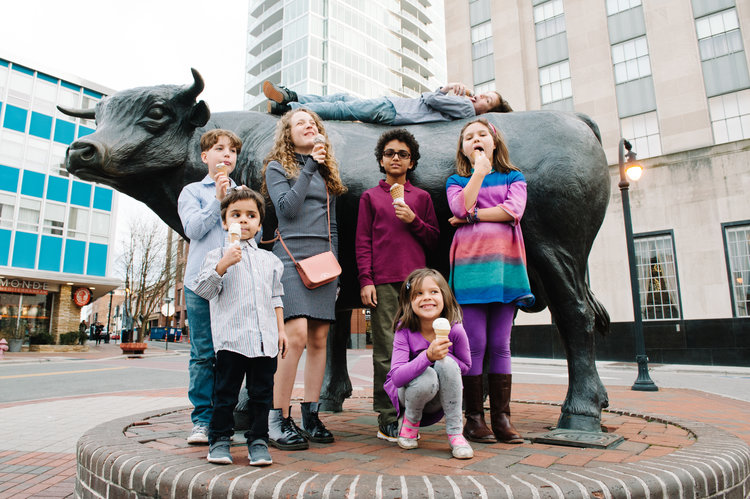This is a work in progress and I take full responsibility for mistakes and omissions. It goes without saying, but I will of course say it anyway, that none of this work would be implemented without the tireless efforts of our dedicated city staff, the hundreds of volunteers who serve on advisory boards and commissions, and the dozens of movement organizations, activists, and advocates who have helped us shape and move policy.
2016
Increased city minimum wage – path to $15 in 2 years
Resolutions
Resolution in support of Paris Climate Accords
Resolution opposing HB2
Resolution Condemning Violence, Hate Speech, and Islamophobia
Resolution Supporting the Equal Rights Amendment
Resolution in Support of the Faith ID Program
Resolution supporting Medicaid expansion
Resolution in support of Duke workers organizing unions
2017
Transparent body camera policy created
Whitted School redevelopment contribution
Expanded paid family leave to 12 weeks
Misdemeanor marijuana possession reduced to lowest-level enforcement priority
Affordable housing trust fund levy increased to 2c.
Funding for Fayette Place site purchase provided to DHA
Resolutions
Resolution Supporting the Continuation of the Temporary Protected Status Program
Resolution Supporting Deferred Action for Childhood Arrivals Program
Resolution adopting Vision Zero
Statement in Solidarity with Anti-Racist Protests in Charlottesville VA
Resolution Opposing Trump’s Travel Ban and Designating Durham Refugee Day
2018
Participatory Budgeting program created
Mayor’s Council for Women created
Race Equity task force created
Ban on police exchanges for paramilitary tactics adopted
Willard Street Apartments approved as all-affordable development
Established annual council/commission retreat with youth commission members
Property tax grant program established
Committee on Confederate Monuments & Memorials established
Fare-free buses implemented for youth
Free parks & rec access for youth implemented
DEAR program launched
Welcome Home program launched
Resolutions
Resolution in support of collective bargaining for public employees
Resolution in support of breastfeeding awareness
Resolution opposing the Hyde Amendment
Resolution in support of CEDAW
Resolution in support of reserving public land for affordable housing
Resolution supporting immigrants in sanctuary in NC
2019
Housing Bond approved
Community Conversations program created
Workers Rights Commission created
Joined SEED fellowship program
Local Progress housing convening held in Durham
Expanding Housing Choices initiative approved
U-Visa policy expansion
Equitable Engagement policy implemented
Eviction diversion funding stream created
Department of Equity & Inclusion created (reorganized EOEA)
Wheels purchase
Beltline trail purchase
Resolutions
Resolution in support of renewable energy and carbon neutrality
Resolution in support of Medicare for All
Resolution in support of NC’s Working Families
Resolution in support of Public Art
Resolution against white supremacy, Islamophobia, & Anti-semitism
Resolution in support of LGBTQ community and repeal of HB2
Resolution in support of renewable Energy transition
Resolution calling for the repeal of the Hyde amendment
2020
$5M in COVID relief funding allocated
Recovery & Renewal Task Force created
Participatory Budgeting Cycle 2
Fare free buses implemented
Comprehensive plan equitable engagement
Transit plan equitable engagement
NIS community-rooted partners engagement funding
JJ Henderson Rehabilitation funded
McDougald Terrace Repairs funded
Resolutions
Resolution in support of Race Equity Task Force Recommendations
2021
FUSE grant obtained and fellows hired
Inclusive non-discrimination ordinance passed
Community Safety & Wellness Task Force created
911 Calls for Service Audit completed
Community Safety Department created
Expansion of Bull City United violence interrupter program
Funding for community health ambassadors approved
Funding for stipends and grants for boards & commissions approved
Workers Bill of Rights approved
Permanent Race Equity Commission established
Funding for language access coordinator
Funding for immigrant and refugee rights coordinator
Funding for immigrant legal defense fund
Youth Listening Project completed
UBI pilot program
Green & equitable infrastructure investment of $6M
Expansion of livestreaming capacity for up to 3 simultaneous languages
High-speed wifi installed in DHA family communities
Mayor’s for a Guaranteed Income UBI pilot started
Resolutions
Resolution in Support of the American Jobs Plan
Ongoing
Increasing community interest and diversity on boards and commissions (6x increase in applications from 2016-2021)
Affordable housing investments up to $160M over 5 years, including large investment in DHA DDNP and capital repairs
State- level Advocacy
Expanded circuit-breaker tax exemption
Allow elected leaders to access police camera video
Repeal HB2
Allow ranked-choice voting for municipal elections
Allow inclusionary zoning for affordable housing
Allow affordable housing requirements for rezoning cases
Remove 10% cap on state funding for light rail system
Drivers licenses for undocumented immigrants
End ban on public worker collective bargaining
Increase state minimum wage to $15/hr.
Give police review boards subpoena power
Allow ranked-choice voting for municipal elections
Support affordable rental housing for Durham Public Schools (DPS) employees
Decriminalize cannabis
Require all employers to provide at least 10 days of paid sick leave


